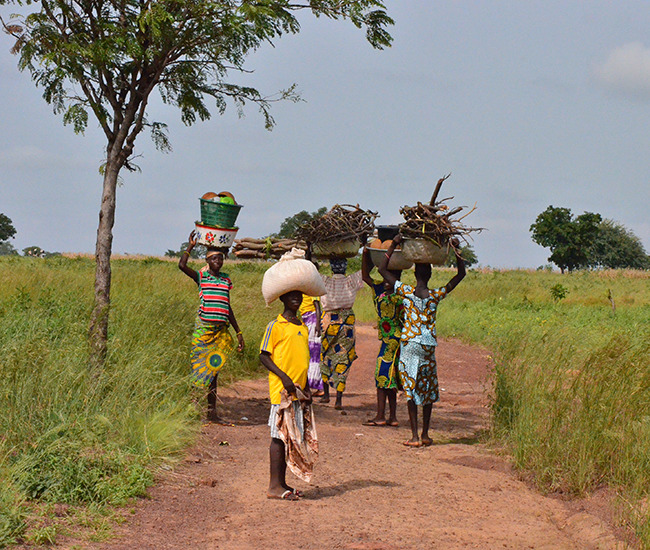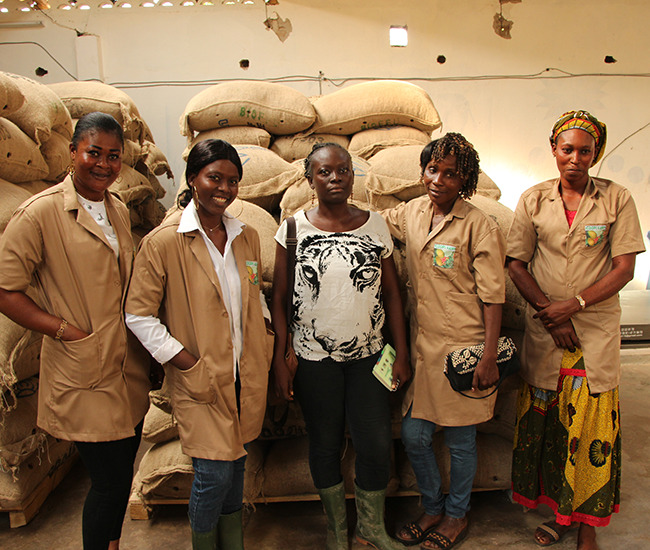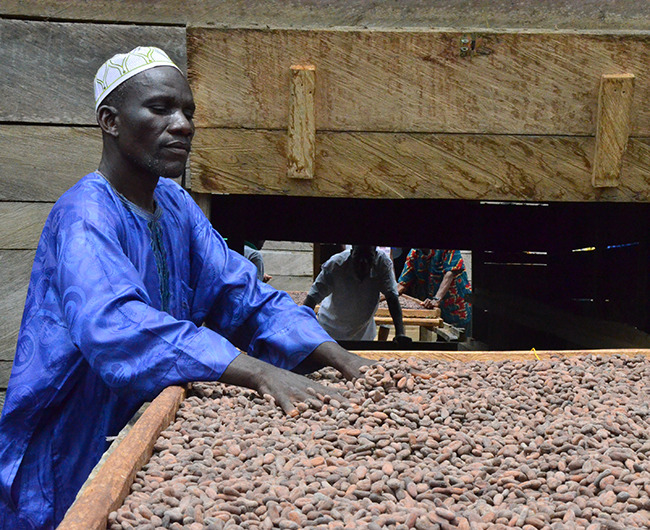The Savanes region in northern Togo is experiencing a soil-fertility crisis caused by human activities and the climate. Farming yields have taken a hit, and smallholder families are not able to generate as much income as before. What’s more, smallholder organizations in the area are still relatively young and are having trouble gaining access to the market to sell their grains and vegetables. The Savanes region therefore faces problems relating to poverty, food insecurity and environmental degradation.
This project supports 10,000 farmers belonging to seven different cantonal unions for grain farmers.
The goal is to combat land degradation in the Savanes region by developing a farming system that is environmentally, economically and socially sustainable.
This includes:
- Restoring the soil and degraded areas by setting up more resilient farming systems and adopting sustainable farming practices. To naturally and sustainably fertilize the soil, training was provided to 450 people, who dug ditches for compost production. Sixty groups (3 to 5 people each) acquired a cart and donkey for transportation. A total of 32 field schools for testing different agroecology techniques were in operation between 2014 and 2016, with the participation of 600 producers.
- Improving the resilience of farms that face climate and economic challenges by diversifying their production. One way to do this is by developing environmentally friendly market gardening during the dry season: wells were installed in six lowland areas to make water more available so that these areas can be more useful during the off-season for market gardening (tomato, onion), and more than 400 farmers were trained in the production and use of biopesticides. Some 250 smallholders were trained in livestock-farming techniques, and 78 received improved animal housing (henhouse or sheepfold).
- Developing the capacities of different actors and encouraging coordination at the regional level. One hundred technicians and farmers received training in agroecology from AVSF, CIRAD and ESA-Angers. Various practical guides were produced as well, and a study on storing carbon in the soil is underway with Togolese and French agricultural research (IRD).
The project is driven institutionally by the French Ministry of Agriculture and funded by the French Facility for Global Environment.








